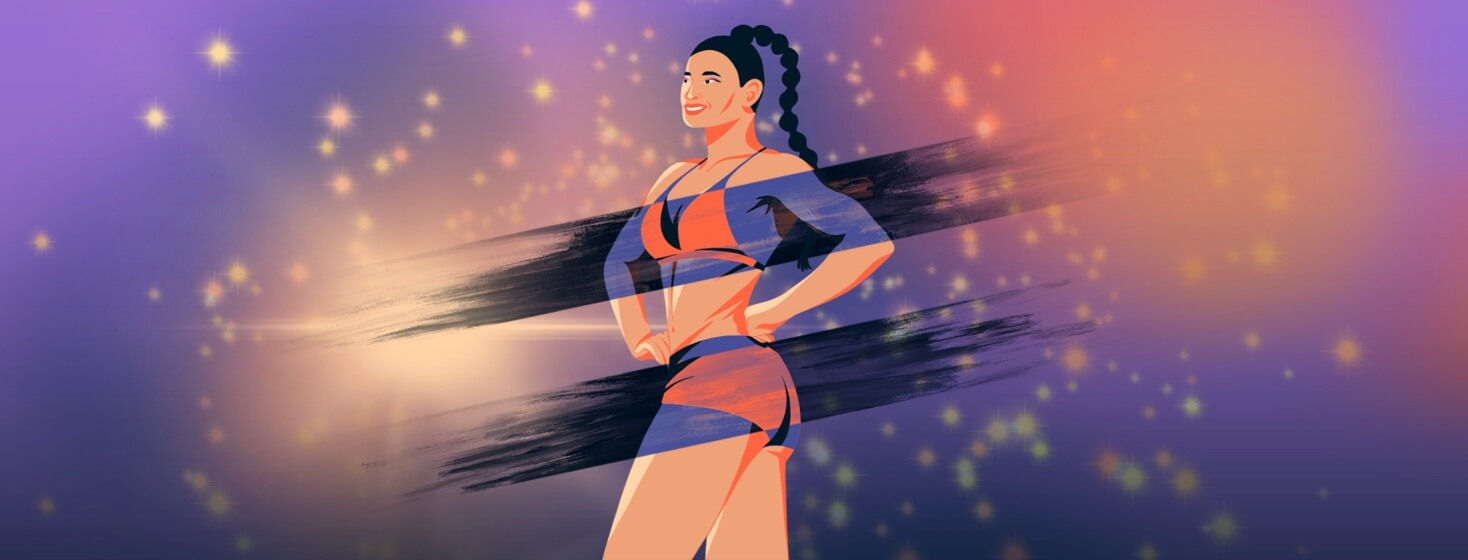Misconceptions About Strokes
According to John Hopkins Medicine, "a stroke or brain attack happens when blood flow to your brain is stopped." I think the biggest misconception when it comes to strokes is, it only happens in elderly people. I will be the first person to say that definitely is not true. That's what you think until it happens to you. At least that's what I thought until it happened to me.1
My experiences proving the misconceptions about strokes to be incorrect
My first stroke at a fitness competition
There I was about to get on stage at a fitness competition. One second all I could feel was nerves, the next second I was slowly falling to the floor. I had been training in the gym for this competition for 8 months and eating clean. Eating clean means that you’re eating fruits, vegetables, and lean proteins only. Training included 2 days in the gym and a strict diet. Along with some strong discipline and work ethic which are needed to compete.
This leads me to the next misconception which is that people who have strokes are unhealthy and don’t take care of their bodies. Before I started competing, I was running track and field in the NCAA. Prior to that, I was always involved in sports teams. I even worked as a personal trainer for a time. Healthy eating was and still is everything to me.
At these fitness competitions, they are like pageants so your hair and makeup have to be done. All the girls are dressed in bikinis to showcase their physiques to the judges. The guys wear trunks except for the bodybuilders who wear speedos. I was nervous because this was a show that I could go pro at if I won. When I got down to the floor my left side was not working at all and my words were slurred. This meant that the right side of my brain was being affected.
According to the American Stroke Association, if the stroke occurs on the right side of the brain it can produce "paralysis on the left side of the body, vision problems, quick, inquisitive behavior style, or memory loss." As for me, it was the paralysis on the left side of my body and I couldn’t speak. This happened when I was 25 years old.3
Second stroke, and recovery
About 4 years later, I got a job working at the Pentagon. Unfortunately, on my second day, I was feeling so sick that I had to ask to be excused while I went to the doctor. They checked me in because I happened to be dehydrated. I rang the bell because I had to use the bathroom and the nurse was taking forever. So I went to the bathroom myself. That was the mistake because when I was in the bathroom I passed out. That’s when my second stroke happened at 30 years old.
The second stroke I had happened and my right side was affected which meant the left part of my brain was affected. The American Stroke Association says, if the stroke occurs on the left side of the brain it can produce, "paralysis on the right side of the body, speech/language problems, slow, cautious behavior style, and memory loss." Me, I experienced right-side paralysis and aphasia. Aphasia is when you lose the ability to speak or communicate caused by brain damage. Another misconception is that strokes do not discriminate on race, gender, or ethnicity. Everyone can be at risk for stroke.3
My first stroke was considered a non-ischemic stroke. Johns Hopkins Medicine defines non-ischemic stroke as being caused by a blockage of an artery. My second stroke was an embolic stroke. "Embolic stroke is caused by a blood clot or plaque debris that develops somewhere in the body and then travels to one of the blood vessels in the brain through the bloodstream."2
The last misconception is that you can no longer function and you are disabled if you have a stroke. Though this may be true for some, it is not the case for everyone. The patient experience is not the same for everyone. While some people may be considered disabled, some people make a full recovery. From my experience of having 2 strokes, you would not know just from looking at me. My right side is still weaker than my left and I am right-hand dominant. I still have problems with writing and the occasional memory lapse, but other than that those are my deficits.
Misconceptions about strokes can be very misleading, but with education and knowledge, we can close the gap.
Do you have a heart failure story? Click the button below to share with our community!

Join the conversation